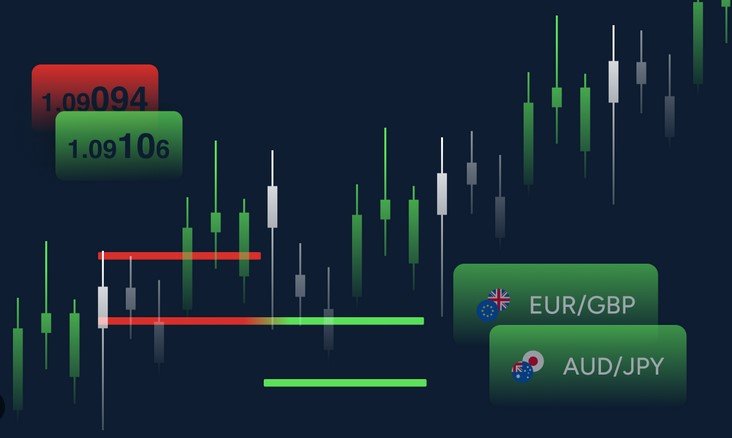Common Mistakes to Avoid in Forex Trading
Forex trading can be a profitable venture, but it comes with its challenges. Many traders, especially beginners, make common mistakes that can lead to significant losses. Here’s a detailed look at the most frequent pitfalls to avoid in Forex trading.

Lack of a Trading Plan
One of the biggest mistakes in Forex trading is not having a solid trading plan. A trading plan should outline your trading goals, risk tolerance, strategies, and methods for analysis. Without it, traders often make impulsive decisions based on emotions rather than logic.
Overleveraging
Using too much leverage can amplify both gains and losses. While leverage allows you to control larger positions with a smaller amount of capital, it also increases your risk. Many beginners use excessive leverage without understanding the risks involved, which can lead to significant losses.
Neglecting Risk Management
Failing to implement risk management strategies is another common mistake. Traders should always use stop-loss orders to protect their capital and determine how much they are willing to risk on each trade. A good rule of thumb is to risk no more than 1-2% of your trading capital on a single trade.
Emotional Trading
Trading based on emotions such as fear or greed can lead to poor decisions. Many traders find themselves chasing losses or holding onto losing trades in hopes of a reversal. It’s essential to stay disciplined and stick to your trading plan, regardless of emotional fluctuations.
Ignoring Economic News
Economic indicators and news events can significantly impact currency prices. Failing to stay informed about upcoming economic reports, central bank announcements, and geopolitical events can lead to unexpected losses. Traders should keep an economic calendar and be aware of potential market-moving events.
Overtrading
Overtrading occurs when traders take too many positions or trade too frequently, often driven by the desire to recover losses or make quick profits. This behavior can lead to burnout and increased transaction costs, ultimately hurting overall profitability. It’s better to be selective and trade less frequently but with more focus.
Not Keeping a Trading Journal
Many traders neglect to keep a trading journal, which is a valuable tool for analyzing performance. A journal allows traders to track their trades, strategies, and emotions. By reviewing past trades, traders can identify patterns, learn from mistakes, and improve their strategies over time.
Lack of Education
Forex trading requires knowledge and skills. Many traders jump into the market without proper education, leading to mistakes. Continuous learning through books, courses, and trading simulations can enhance your understanding and improve your chances of success.
Following the Crowd
While it can be tempting to follow popular trends or mimic other traders, this approach often leads to poor outcomes. What works for one trader may not work for another. It’s essential to develop your own strategies based on thorough research and analysis rather than relying solely on others’ opinions.
Setting Unrealistic Expectations
Many new traders enter the Forex market with unrealistic expectations of quick profits. This mindset can lead to frustration and impulsive decisions. It’s crucial to understand that trading is a long-term endeavor that requires patience, discipline, and consistent effort.
Failing to Adapt to Market Conditions
Markets are dynamic and can change rapidly due to various factors. Many traders stick to their strategies without adapting to new market conditions, which can lead to losses. It’s crucial to remain flexible and modify your trading approach based on current market trends and indicators.
Relying Solely on Technical Analysis
While technical analysis is an important tool in Forex trading, relying solely on it can be detrimental. Traders should also consider fundamental analysis, which examines economic factors and news events that can affect currency values. A balanced approach, combining both technical and fundamental analysis, often yields better results.
Forex Insights and Gaming Fun
Trading strategies require attention, but online pokies provide exciting breaks. Bonuses enhance the experience. Try https://www.newzealandcasinos.io/best-payout-casinos/ for thrilling entertainment. Learning and fun coexist effortlessly.
Conclusion
Avoiding these common mistakes can greatly enhance your Forex trading experience. By creating a trading plan, practicing risk management, and staying informed, you can navigate the Forex market more effectively. Remember, successful trading is a journey of continuous learning and adaptation.













